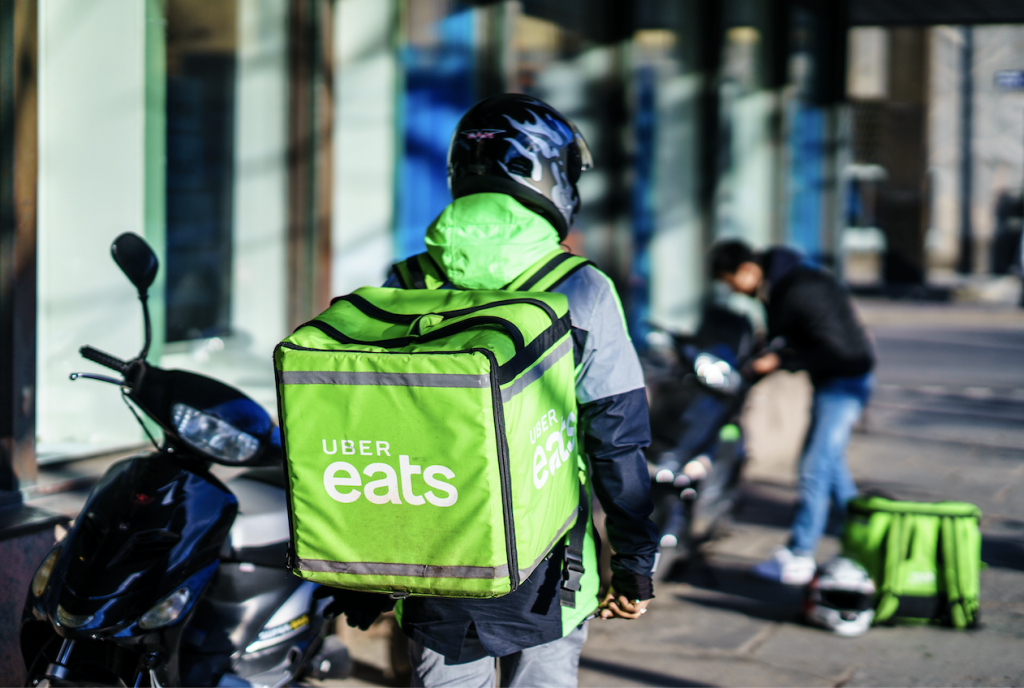Uber’s decision to extend pension to 70,000 employees, alongside sickness insurance cover creates an opportunity to deliver group protection benefits to millions of gig workers says Legal & General.
The ride hailing app has today announced it will pay pension as well as sickness, injury and maternity and paternity benefits to all qualifying workers, following the Supreme Court’s landmark ruling last month that its drivers could be legally classified as workers rather than self-employed.
L&G says the news represents a significant opportunity for collaboration across the group protection industry to help all workers, whose needs and budgets may be flexible, to put in place essential protections – in terms of life, income protection and critical illness cover.
The ride hailing app has said it will only pay workers for when they are actually connected to a customer via the app – not waiting time – meaning an Uber driver would need to be paid for at least 22 hours a week to earn the £10,000 a year threshold for being auto-enrolled, based on the new national living wage from April of £8.91 an hour.
Uber drivers have been covered by insurance for sickness, injury and maternity and paternity payments since 2018.
Legal & General distribution director, group protection Colin Fitzgerald says: “This news represents a significant opportunity for collaboration across the group protection industry to help gig workers.
“This will require insurers and intermediaries alike to also adapt to changing ways of working; to respond to challenges that the products lack flexibility and are not always budget friendly. Elevating the discussion beyond price to outcomes for employers will be key, especially given the anticipated growing demand for these protections post-pandemic and the pressing need to now integrate benefit and wellbeing agendas.
“This will require cost effective models, underpinned by the latest technology, to help deliver benefits that can not only be tailored to individual needs but also delivered in the kind of mobile-first way that workers are used to in their everyday lives.”
Hargreaves Lansdown senior investment and markets analyst Susannah Streeter says: “’Uber’s decision to reclassify its 70,000 drivers as workers will reverberate through the entire gig economy. It has become clear that the Supreme court’s decision last month steered Uber into a dead end in its fight to keep those behind the wheel on self-employed contracts. It is likely that other operators will now be forced to reassess the employment status of the drivers they have relied on to develop lucrative businesses.
“The company has reversed on its previous position of claiming that the ruling only applied to a limited number of drivers who had brought the case. Throwing in the towel is likely to come at a significant cost to the company. Drivers will not only be enrolled in a pension plan with contributions paid by the company but they will also be paid the national living wage as a minimum and receive holiday pay.
“Uber had warned investors when it listed in 2019 that a reclassification of drivers would adversely affect the business. Uber’s share price fell slightly by just under 1 per cent in after-hours trading in New York, as investors digested the implications of the decision.
“It seems Uber could still try and limit the financial damage to the bottom line by fighting its corner on what constitutes ‘working time’. The Supreme court ruling judged it should be when drivers log into the app, but the company appears to have indicated it won’t include time waiting to find a customer.
“The decision has been taken at a time when the company is still in recovery mode from the worst effects of the pandemic. Although demand for Uber Eats deliveries continues to rise, it’s still not offset the sharp decline in driver bookings. However it’s not Uber’s short term profitability, but its vision for the future that appears to have kept significant interest in owning the stock through the crisis. Over the past year Uber’s share price has more than trebled as it advances its plans to use its technology to corner the markets in everything from food and freight deliveries to green transport and even access to healthcare via its ride service for patients.”
“Its employment policy u-turn may prove to be a set back on its ambitious road map, but it might accelerate Uber’s plans to bring in autonomous cars to minimise the increasing cost of human labour.’’
Aegon head of pensions Kate Smith says: “For Uber drivers the addition of benefits like a pension will provide a degree of longer term financial security and help to provide a base level of income in retirement for those who stay with the company longer term.
“It looks as though there will be further wrangling over what Uber deem the drivers’ working hours and this will have important ramifications for whether people meet the minimum income threshold to be enrolled in a pension.”
